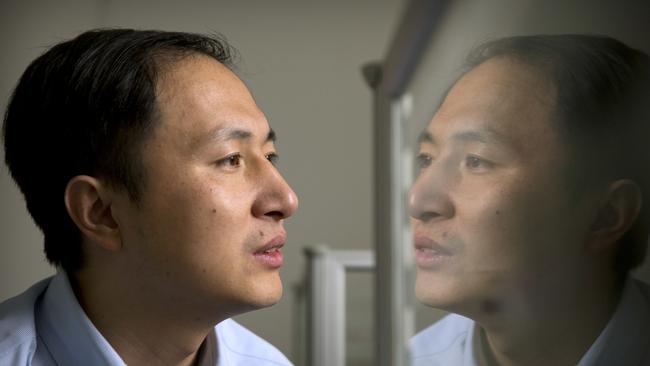HIV-resistant genes ‘could shorten lives’
A genetic mutation thought to make people resistant to the virus that causes AIDS could also shorten their lives.

A genetic mutation thought to make people resistant to the virus that causes AIDS could also shorten their lives, according to a study that has renewed concern over a Chinese experiment that created the first gene-edited babies.
The study, published in a scientific journal run by Nature, found that people who had the mutation in both copies of a gene known as CCR5 had their lifespan reduced on average by about two years compared with those who didn’t.
Chinese scientist He Jiankui, who drew rebukes last year when he announced the birth of twin girls he said were designed to resist HIV, tried to mimic the mutation in embryos he implanted.
Rasmus Nielsen, a biologist at University of California, Berkeley, who co-wrote the Nature study, described Dr He’s tinkering with embryos as “reckless” because he may have unknowingly introduced harmful changes.
He said the study’s findings didn’t directly apply to the Chinese experiment because Dr He ended up causing other mutations in the same gene instead. “It would be reckless to cause the sets of changes that we believe cause HIV resistance,” Dr Nielsen said.
“It is even more reckless to cause mutations you believe cause HIV resistance but you really don’t know what they are.”
Chinese authorities detained Dr He in January after saying he flouted the rules in proceeding with his experiment. Dr He couldn’t be reached for comment, and it couldn’t be determined whether he has legal representation.
The Wall Street Journal


